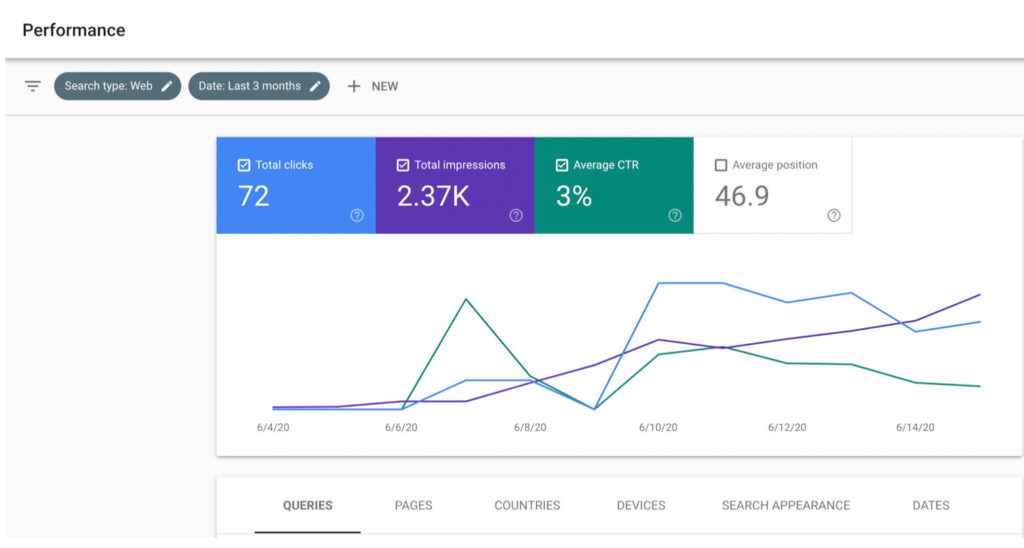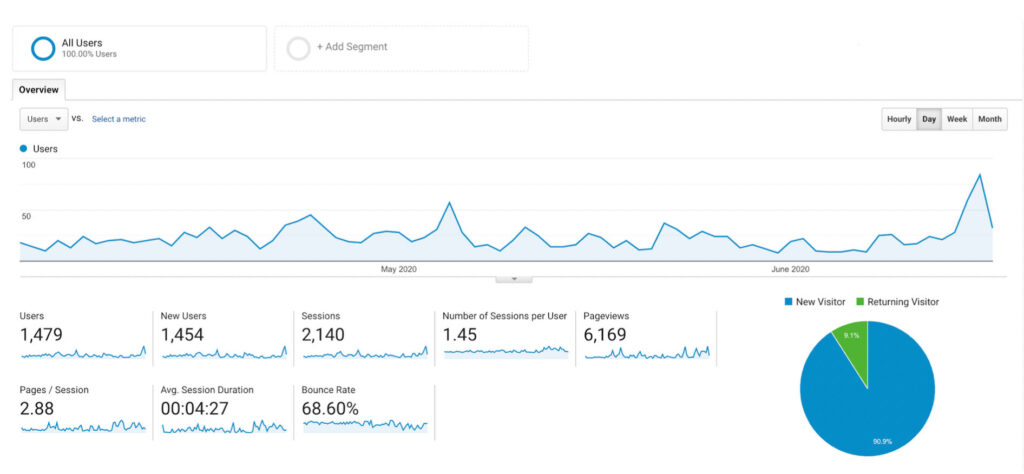Consultant Chris Ayliffe from Arctic Meta writes for Union Digital.
If you’re a bit of a Google geek you may have stumbled across the term ‘BERT’ being mentioned online since October 2019 in various articles and forums. However, as is often the case with Google algorithm updates, though the basic principles are usually well understood, often digital marketers fail to work out how to respond to make sure their own websites are up to speed whilst taking advantage of the opportunities they present.
So, let me break this down to clear up what BERT means for you, how you should respond to it and what the main opportunities are for digital marketers dabbling in the depths of SEO.
What is the BERT algorithm update?
First of all, BERT stands for Bidirectional Encoder Representations and transformers, a phrase that doesn’t quite roll off the tip of your tongue.
In human terms, BERT is a deep learning algorithm related to natural language processing (NLP). Its aim is to better understand the context and intent behind given search queries. This is a natural progression for the Google algorithm as searches become increasingly more nuanced, complex, and often conversational. Part of this is down to the rise of voice search which predominantly focuses on Q&A based searches.
Basically, with growing demands from searchers, the importance to derive desired information more and more quickly has only become more apparent. You could even say Google’s mobile-first approach led to the self-fulling prophecy of BERT, due to the modern demands digital marketers now have to meet with site speed optimisation.
In essence, the faster the requirements for websites to load, the less patience searchers will have, and thus a need for accurate contextual search results is now more prevalent than ever before.
It’s a lot, right?!
However, with BERT Google took this progression one step further. Google created the BERT NLP framework and then open-sourced. This was to enable the whole NLP research field to get better at natural language understanding overall.
This new open-sourced approach led to a massive boost to the research field, by accelerating the understanding to a much wider community of experts much faster. In fact, if you perform a Google search on BERT now, a lot of information will be non-Google related.
This not only supports NLP communities but also those in the fields of machine learning with rigorous analysis of huge Q&A datasets as well as 2500 million words in the English Wikipedia. However, don’t stress out just yet, BERT is claimed to only impact around 10% of search results. Though, that’s quite large, you shouldn’t worry about losing all your rankings overnight and Google forgetting you exist.
How does BERT affect your business?
The short answer is if you’re not contextually relevant, you’re not going to rank well for your target keywords in search results pages (SERPs).
However, if you’re an online business, the chances are you will have invested a great deal of time into content marketing. Though, to be blunt, if what you’ve produced is of low quality and fails to answer key user queries, then BERT may be a much bigger issue for you to take note of.
Why? Well, it’s all about answering user queries accurately with a high degree of relevance.

As mentioned, BERT is forcing content creators to focus more and more on user searches (as you should already be doing!), and regardless of domain authority, if you miss the mark you will miss the rankings.
Now, for online businesses this is definitely something to keep on top of.
I’ve worked in businesses where if you fail to rank, you lose traffic and your marketing funnel of advertising, email marketing and social media marketing can be impacted, as well as your bottom line revenue. So, to the digital marketers reading this, now more than ever you need to ensure your content marketing strategy focuses on being contextually relevant to stay in the game. To achieve this you need to make sure everything you produce and promote starts with professional keyword analysis.
I’ve seen so many times companies producing great pipelines of content with one major flaw, no one is searching for what they’ve produced. That’s a bit like shouting into the wind. It doesn’t matter if you’re the next JK Rowling and you produce content on the next Harry Potter series, no spell is going to force people to search for what you produce. So, always make sure you conduct keyword research and topic analysis before getting straight onto your keyboard.
It’s not about producing less, it’s about producing smart, relevant and contextually useful content. The more you do this, the more BERT will be your best pal.

How should digital marketers respond to BERT?
As digital marketers, with any challenge comes a good number of opportunities not only to mitigate problems but also improve your situation.
BERT is no different.
Let me break this down into the following steps:
- Analyse your website data
- Adjust your content strategy
- Update existing content
Analyse your website data
The first port of call whenever Google likes to bring in a new algorithm update is to check the impact this has had on your website. For SEOs and digital marketers, this response should now be as instinctual as putting out your hands to break a fall.
For this, you’ll want to check out both your Google Analytics and Google Search Console accounts to identify any trends which have impacted your website since October 2019 (when the algorithm was rolled out.)
On Google Search console, you’ll want to check out the following:
- Average Search Position
- Search Positions (e.g. on valuable pages or high traffic generating pages)
- Impressions
- Clicks

The reason for this is to see if your organic search rankings, visibility and traffic has been either positively or negatively affected by BERT.
As is often the case with Google algorithm updates such as this, you may find some pages are negatively affected whereas others are not, or have actually improved (it’s part of the fun!).
Next, with Google Analytics you’ll want to identify the following metrics associated to organic search:
- Sessions
- Pageviews
- Pages per Session
- Average Bounce Rate
- Average Time on Page

Again, this information should help you to understand whether your website pages are relevant and useful to the users landing there. For example, if you have a high bounce rate or a dropping average time on page metric, it’s likely your content is insufficient for the user who performed the search and landed on your website. If this is the case, alarm bells should be ringing as if you leave this unchecked Google will start to deem your pages as less relevant and useful to users and drop you in the rankings.
Now, if you spot some trends like this, it’s important to not jump the gun. It might not be to do with the algorithm update at all. There are a number of factors to consider and stay on top of. It could instead mean the user experience (UX) is a little off.
For example, you may have tweaked your page design recently which inadvertently made your page harder to interpret and less user friendly.
Alternatively, your title tags and meta descriptions displayed in SERPs may be misaligned to the context of your webpages, or even the links on your pages may go off to some unhelpful sources of information.
So, don’t panic at this stage. Simply identify the trends since the BERT update and move on to the next stage.
Adjust your content strategy
Your content strategy now more than ever needs to be focused on contextual relevance.
It’s simply not enough to check out useful keywords to target from thorough keyword research, you also need to think like a human (not a search engine) and understand the intent behind various searches.
For example, if you’re a travel company and identify a strong long-tail keyword opportunity for hospitality, such as ‘best family-friendly hotels in Edinburgh’, you need to understand whether this is either an information or action-focused keyword. Contextually, this keyword is more likely the user aiming to derive information on the options of family-friendly hotels in Edinburgh before the action-focused search to book.
So, if you identify this keyword and create a relevant blog with a list of the best options for the user conducting this search (with some links to a booking page), perfect!
However, if you simply create a product-based landing page, you may have misunderstood the context of the search and struggle to rank, or be negatively impacted in existing SERPs.
When it comes to your content strategy, you now more than ever need to both include user intent analysis as part of your keyword research process and make sure your content is ticking all the right boxes for on-page seo.
Update existing content
Your initial analysis should have helped to spot some pages that might need your attention as well as those unaffected or have even improved. For those pages you’ve identified as having lost positions and traffic from organic search channels, it’s time to implement the following process:
- Create a list all of the affected pages (Google Sheet or Excel is a good way of managing this)
- Rank these in order of priority (e.g. value-generating pages or biggest traffic generators)
- Include the keyword position changes (if applicable)
- Check the keyword intent vs your page content
- List any UX changes per page (e.g. title tags & meta descriptions, on-page design & SEO tweaks, and external links)
Once you’ve conducted the above analysis you will be able to understand which existing pages on your website need your attention in order of priority, whether your pages need to be rejigged or new content needs to be produced to be more relevant, or if any on-page or off-page page tweaks need to be investigated or altered to remain contextually relevant.
Unfortunately, this is not a quick process to complete.
In fact, ironically, the more diligent you have been at producing content in the past, the longer this may take to resolve.
However, this is also an incredible opportunity for digital marketers to take an edge on their search rivals. Countless times larger companies in particular neglect the ability to act reactively to these kinds of algorithm updates and BERT is no different. If you are a first mover to improve your content, spot optimisation opportunities, or even produce new and highly contextually relevant content, not only will you retain your search positions in the long-term but you could also use it to jump above your key competitors.
Just like with monitoring backlink opportunities based on the best backlink generating pieces of content your search competitors are producing, digital marketers need to continue to stalk each other. In this context, identify which pages your competitors have taken a hit on in terms of their SERP positions, and then be quick enough to either modify your competing pages or produce new content to steal ground from them. I guarantee they will be doing this to you. SEO, after all, is an endless game of cat and mouse, but reacting quickly and smartly is what will give you the edge.
Conclusion
BERT is another great step forward for Google to better understand the context and intent behind user searches and reward content that meets their needs.
Much like with every Google algorithm change, if digital marketers fail to respond there’s a strong chance you will pay the price in terms of SERP positions, traffic and potentially even your bottom-line.
If you haven’t already measured the impact on your website or responded to the BERT update, use the guidance above on how to react best and re-strategise your digital and content marketing to mitigate problems and take advantage of opportunities.
I hope you found this blog on what Google’s BERT algorithm update means for digital marketers. To reassure the Brits among you, I’m sure Google is still a long way from understanding our complex cultural social cues, but give it time!
Found this article useful? If you’re looking for help analysing and understanding your business’ search performance, or looking to grow your online profile, get in touch. Union Digital have a team of digital marketing and content experts who can help you get to grips with your online marketing strategy and help lead your business from strength to strength. Chris Ayliffe works with our in-house team to bring added expertise to bear on your digital challenges.